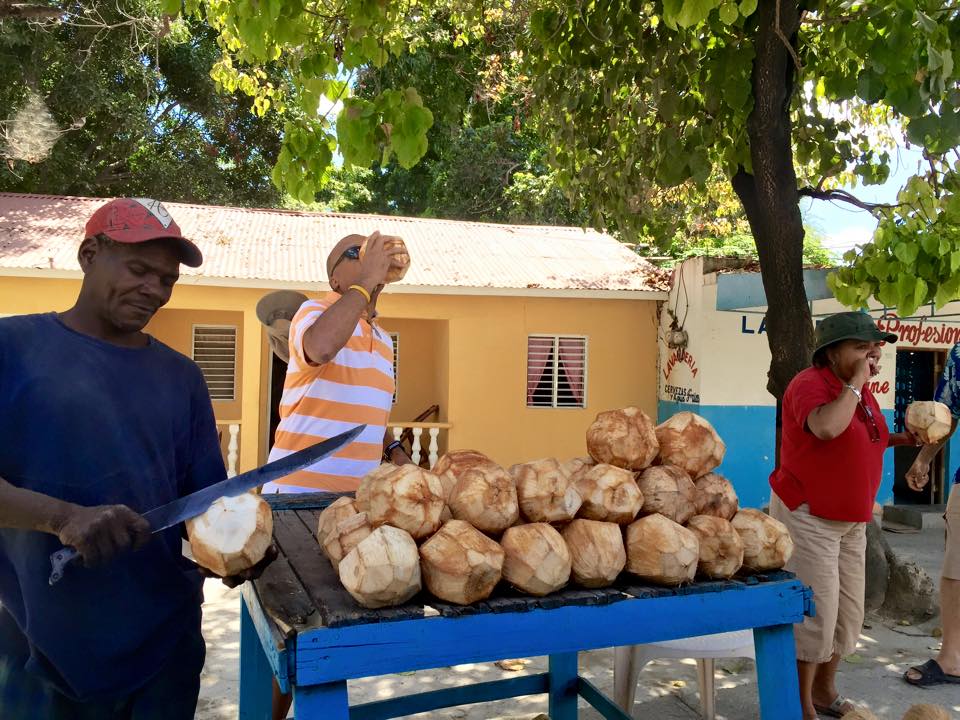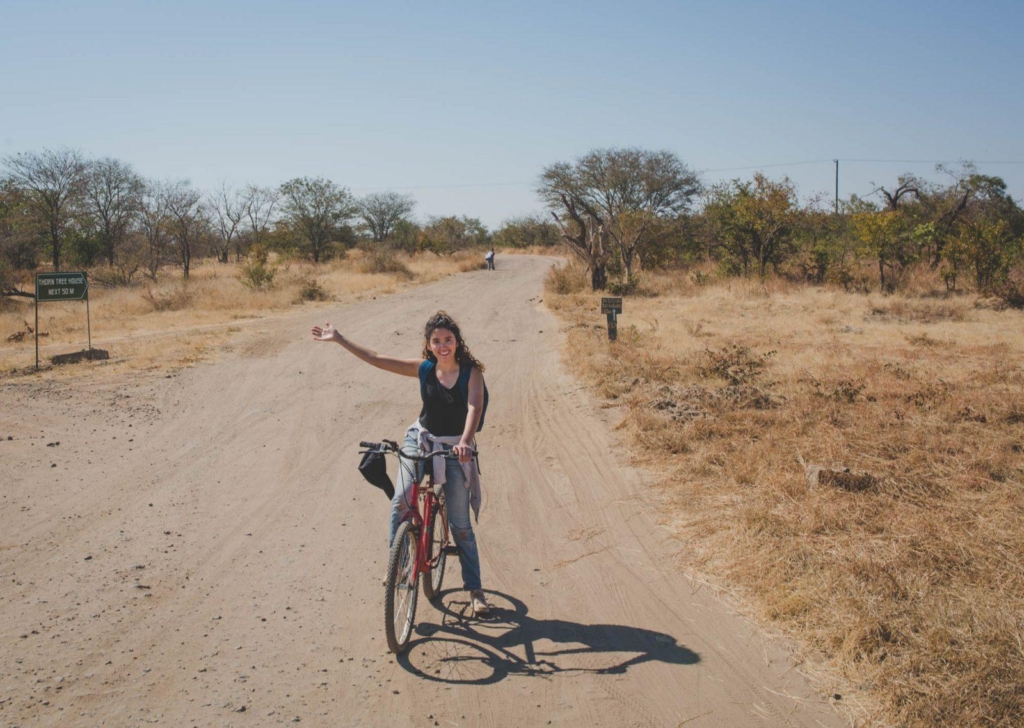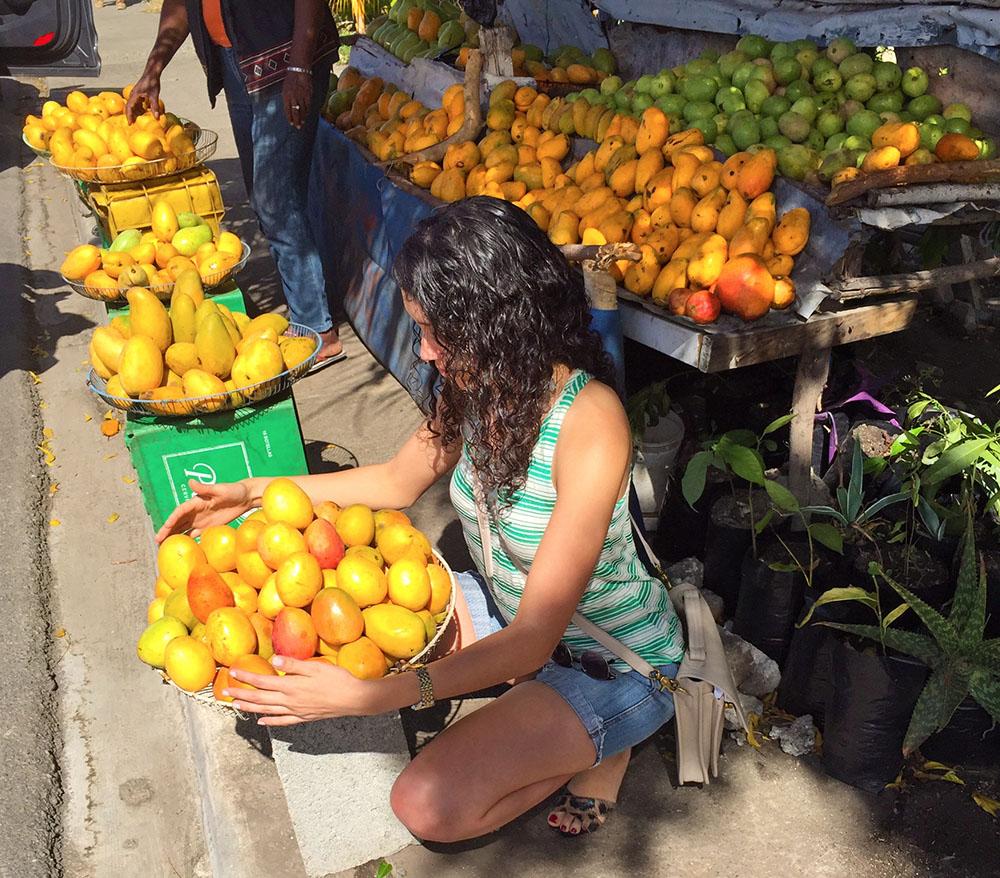Traveling can be a challenge for those of us with autoimmune diseases and other chronic illnesses. However, with some planning and preparation, it is possible to enjoy a worry-free trip. Here are some of my top tips on how to make traveling with autoimmune diseases, such as fibromyalgia, a little easier.
My Personal Story

My personal story: I have fibromyalgia, an autoimmune disease that causes widespread pain, inflammation, fatigue, and other unpredictable symptoms that can randomly disable me if I’m not careful. On top of that, I also have chronic allergies, which have landed me in the hospital a few times in the past. But despite these disabilities, I’ve still enjoyed traveling around 50+ countries now and often solo! From camping in the Mongolian Gobi desert to hiking up the tallest peak in the Caribbean, I’ve achieved travel goals beyond my imagination, while managing my autoimmune disease. It hasn’t always been easy but it is possible!
Here are ways we can travel while prioritizing our health. This can be applicable to while you’re home or traveling. Because if we don’t prioritize our wellness and take care of our health, well then… we can’t travel! Of course, go see a doctor for any medical advice!
Traveling With Fibromylagia
1. Plan Ahead
Planning ahead is crucial when traveling with chronic illness. Research your destination beforehand, so that you’re not stressed when on the ground. Have your itinerary booked and organized ahead of time. This will help you book the most physically accessible/comfortable hotels, tours, and transportation before they sell out.
This planning should also include finding out what medical facilities and support services are available in case of an emergency. Also, make sure to carry a copy of your medical history, any prescriptions and a list of emergency contact numbers with you at all times.
2. Pack Smart

Packing smart is important when traveling with autoimmune disease. Make sure to pack all the necessary things you need to feel your best physically. Whether that’s the right clothing and shoes or medications (including any over-the-counter pain relievers and any other medical supplies you might need). You can also bring a comfortable pillow, blanket or any other item that will make you feel more comfortable during the journey. I love packing a mosquito net everywhere I go, to safeguard the quality of my sleep in buggy destinations.
I also can’t stress enough the importance of packing warm clothes for the plane! Flights get COLD. And you don’t want to turn into an icicle on an icy-cold plane ride and then get sick during your vacation. I’ve learned the importance of packing warm clothes for this, the hard way!
3. Choose the right mode of transportation

When traveling with autoimmune disease, choosing the right mode of transportation can make a huge difference. If you have fibromyalgia, for example, it may be more comfortable to travel by private taxi rather than by local buses or other forms of public transportation. And for some, flying may cause more pain or inflammation, so you might want to first consider trips that are accesible by car or train instead of flights. And if you do need to fly, consider booking a direct flight and upgrading to a more comfortable seat if possible.
4. Invest in Comfort

Prioritizing your health means investing in physical comfort. Here are just a few travel things you should invest in:
- Direct Flights
- Refundable tickets and accomodation
- Comfortable flight boarding/seating
- Private taxis
- Safe and comfortable accomodation
- Top tour companies that will take your disabilities seriously
- Destinations where you can receive safe and adequate medical help (depending on your circumstance)
5. Limit or Avoid Alcohol

I just returned from a press trip, where I didn’t have a drop of alcohol until the last few days. Let me tell you, even with 14-hour work days, I had so much stamina! Until we were gifted a really nice bottle of wine. Bam. Just a couple of glasses, and the next day, I woke up with my body’s battery power at 70%. Alcohol is literally toxic. So avoiding alcohol can be a major key to feeling better. These days, I either greatly limit or completely avoid alcohol, especially when doing high-paced travel.
6. Plan to Take Breaks

When traveling with chronic illness, it’s important to take breaks, not just when you need to. Schedule downtime into your travel itinerary before your body forces you to with repercussions. This could mean booking a massage, sleeping in, stretching, meditating, or simply taking a few deep breaths. These breaks will also help your listen to your body. This is also pivotal; even if this means adjusting your itinerary.
Fun fact: Massages and spa retreats can be much more affordable in many other countries around the world. So don’t sleep on treat-cho-self days during your travels; they can make a world of a difference!
7. Be mindful of How You’re Eating


Sounds easier said than done, I know. It’s not always easy to adhere to food restrictions and healthy eating while globetrotting. In some parts of the world, choosing what you want to eat is a luxury. So sometimes you find yourself having to settle for the dish that’s available due to scarcity. For this, I always make sure to pack emergency snack bars and healthier/non-inflammatory food alternatives in my luggage just in case. Especially for long tours or big hikes.
Since I’m prone to inflammation issues (which bread worsens), I also cook my own breakfast at Airbnbs.
Or when possible, try to order plenty of nutritious foods and try to avoid processed foods or deep-fried dishes. I love to fill up on flavorful protein and veggies. Then, I move on to the other stuff in moderation. Fried/sweet stuff I prefer to order as shared plates with friends. That way I can enjoy it in moderation, too. Win-win. Sounds easier said than done, I know. It’s not always easy to adhere to food restrictions and healthy eating while globetrotting. In some parts of the world, choosing what you want to eat is a luxury. So sometimes you find yourself having to settle for the dish that’s available due to scarcity. For this, I always make sure to pack emergency snack bars and healthier/non-inflammatory food alternatives in my luggage just in case. Especially for long tours or big hikes.
If you have food allergies or intolerance, make sure to carry appropriate snacks and inform restaurant staff of your requirements.
8. Stay Hydrated + Electrolytes

Staying hydrated is crucial, period. But especially when traveling with health issues like my autoimmune disease. Make sure to drink plenty of water, especially if you are flying, and avoid alcohol and caffeine as they can further dehydrate you. But did you know that plain water isn’t the most hydrating beverage, according to a study from St. Andrews University? Electrolytes contribute to better hydration! I love packing these sugar-free electrolyte powders for travel.
Also, be mindful of drinking water right before bed, as it can cause you to get up during the night and lose sleep. And sleep is especially crucial for us travelers with fibromyalgia/autoimmune!
9. Get Enough Sleep & Rest

Getting enough rest is essential for wellness when traveling with health issues. Both mentally and physically. When you travel a lot you’re often constantly moving and meeting new people. On top of that, you’re also absorbing new experiences, environments, and other new stimulants that while amazing can still exhaust you. So among many things, I make sure to take me-time to mentally recharge even if that means traveling more slowly.
But most importantly, I am strongly committed to getting 8 to 9 hours of sleep, minimum per day. With 8-9 hours of sleep, I feel like Superman. Anything less than that, and I’m a walking zombie. So I make sure to either get home early enough to unwind, rest, and sleep or to NOT commit to any early morning activities.
Simply put, the quality of my mind/body is fully dependent on my sleep! So make sure to invest in sleep each night, and avoid foods that will keep you up late at night.
If you have trouble sleeping, consider bringing a sleep aid or white noise machine to help you sleep better. I travel with my $30 Alexa everywhere, which offers different white noise sounds.
Of course, there are days when you have a crazy flight or an early excursion, or the time change messes up your sleep pattern. So plan your sleep ahead of time.
10. Go Slow & Don’t Over-Exert Yourself

When traveling with illnesses, it’s important not to over-exert yourself. Avoid scheduling too many strenuous activities. If you’re visiting a new city, consider taking a guided tour or hiring a private guide so you can learn about the city’s history and culture without having to do too much planning/walking.
It’s easy to cave into FOMO (fear of missing out) and to try to see everything. But it is better to see some things and feel healthy than see a lot of things and then physically hurt.
As a teenager, zooming from one destination to the next and checking items off my bucket list as I moved through different destinations was one of my favorite ways to travel. But as I got older and began to appreciate the details between places, the different histories, and especially the cultural insights. I realized the value in forgoing half of my bucket list items to see less and slowing down to savor more. Today, slow travel has helped me curtail travel burnout, autoimmune flair-ups, and getting sick while on the road. It’s also proven to be more economical, which in the end, allows me to keep traveling more.
11. Embrace Fitness, Movement & Physical Therapy

This one can be tricky with disabilities. But fitness, when done carefully around my limitations, has drastically improved my mental and physical well-being. This has also helped me be stronger while traveling.
If you’re traveling long-term, consider visiting the local gyms or fitness studios for classes such as pilates or yoga. They’re a great way to immerse yourself in the local everyday scene while getting a good workout. Or even better, hire a private trainer and explain your limitations so that he/she can tailor your custom workout to your needs.
Another way to stay active while traveling? The healing outdoors! Excursions such as hiking, horseback riding, and swimming can rejuvenate the mind and body. Depending on where you are, you may be able to take unique lessons such as surfing or flamenco dancing, which can be really fun ways to culturally connect while getting some guided movement into your body.
12. Take Your Medicine, Probiotics, Etc.


While exploring the world, you may not have access to the same doctors or pharmacies from home. So I make sure to pack my medicine, from everyday supplements to emergency prescriptions.
It’s important to explain to your doctor that you’ll be away for a longer period of time and to prescribe X month’s worth of that medication. You can’t always find the medicine you need abroad, so this is a critically important step before leaving your home country.
13. Be Prepared for Emergencies
When traveling with a disease, it’s important to be prepared for emergencies.
- Make sure to carry a first-aid kit and any other necessary medical supplies, and be aware of the nearest hospital or medical facility in an emergency.
- Get travel insurance that covers you!
- Always have someone at home know where you are.
- Keep a copy of your passport. Etc.
14. Use the Apps to Order Your Healthy Groceries

With all the apps (like Amazon’s Whole Foods, Uber Eats Groceries, or InstaCart), you can now order grocery goods to your hotel or home rental without having to spend time shopping at a supermarket or carrying groceries. So that’s how I get my water, yogurt, fruits, and other necessities without much effort.
In conclusion, traveling with an autoimmune disease or chronic illness can be a challenge, but with some planning and preparation, it is possible to have a worry-free trip. Just remember to listen to your body, take breaks when you need to, and be mindful of your diet!


